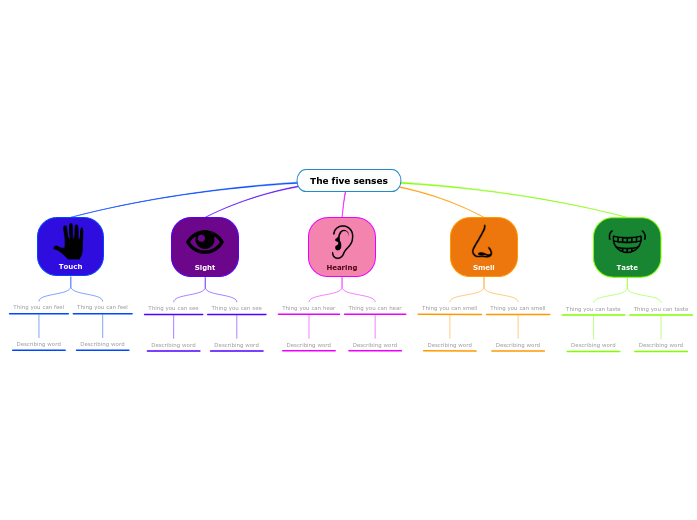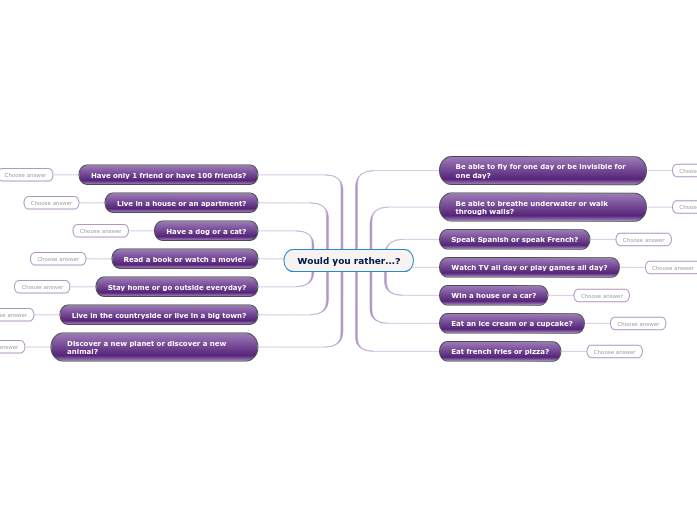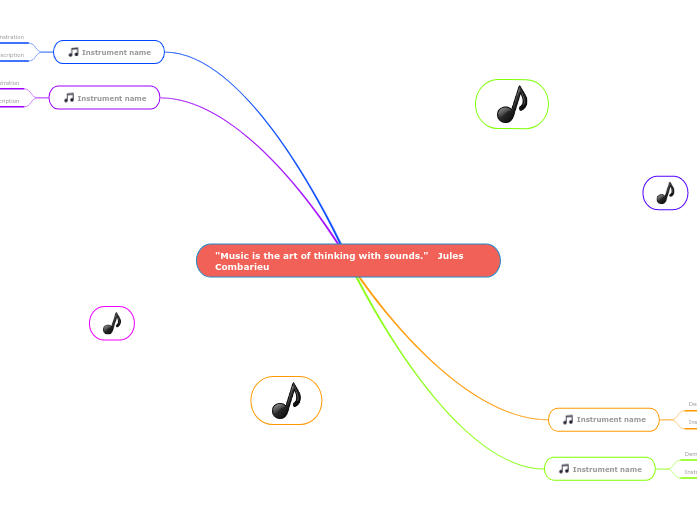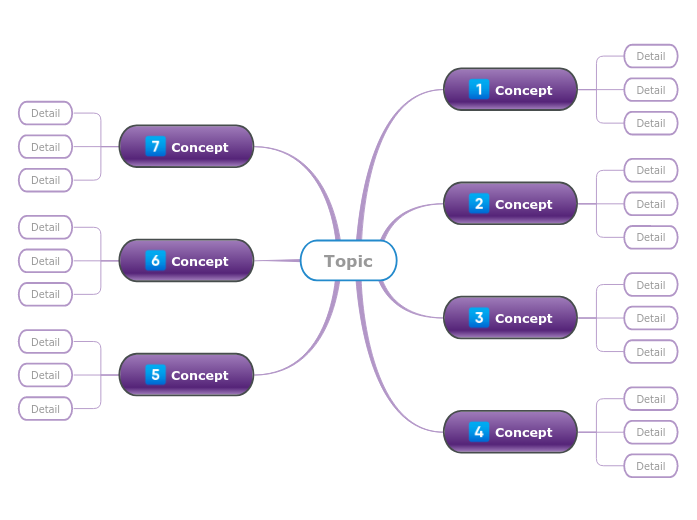The five senses for kids
This template explains the five senses for kids, with simple words, asking them to complete with examples of things they can feel, smell, taste, hear or see. They will learn about the sense of taste, touch, sight, smell, and hear. They will have fun learning new things!
Senses send messages through receptor cells to our brain, using our nervous system.
List a thing you can taste.
Example: cake, chocolate, pizza
Add a describing word for that thing.
You can choose from the examples below:
List a thing you can smell.
Example: laundry detergent on clothes, perfume, food from the restaurant
Add a describing word for that thing.
You can choose from the examples below:
List a thing you can hear.
Example: clock ticking, birds chirping
Add a describing word for that thing.
You can choose from the examples below:
List a thing you can see.
Example: sunset, picture
Add a describing word for that thing.
You can choose from the examples below:
List a thing you can feel.
Example: sand, a fine silk coat, a fluffy teddy bear
Add a describing word for that thing.
You can choose from the examples below:








